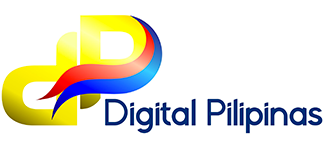Digital Pilipinas showcases PH as soft haven for global innovators
With the ASEAN digital economy poised to reach a value of $1 trillion by 2030, Digital Pilipinas showcases the Philippines as a “soft haven” for global innovators.
At the recent Digital Pilipinas Festival (DPS), foreign and Filipino leaders shared their plans for mutual advancement by making innovations like Web 3.0, InsureTech, AI, and Big Data, among others, more accessible to the mainstream public.
Digital Pilipinas is the largest private sector movement for creating a technology and innovation ecosystem geared to bring about technological acceleration in the country and building an anti-fragile system in its societal structures and industries.
It convened the Digital Pilipinas Festival, which was composed of the World FinTech Festival-Philippines and the Philippine FinTech Festival, in partnership with Elevandi, an organization founded by the Monetary Authority of Singapore (MAS) to foster public-private-sector dialogue to advance FinTech in the digital economy.
Amor Maclang, Digital Pilipinas and World Fintech Festival-Philippines convenor, acknowledged the conference leaders “who share ASEAN’s vision of innovation and unity born from a desire for mutual advancement.”
With Digital Pilipinas as a platform for international tech collaboration, she also positioned the Philippines as “a welcoming gateway to ASEAN for other countries who wish to do business in our region, for innovators from other countries who, in the face of adverse political or economic conditions, need to temporarily relocate to where their culture of innovation will be preserved.”
The advantages of ASEAN tech collaboration
Manish Bhai, founder, president, and CEO of UNO Digital Bank, agreed that without such a cross-border ecosystem, “we will not be successful with digitalization. What we are trying to do is that everyone is a collaborator. It has to be cross-country, ASEAN, regional, global.”
A positive impact on trade would be the first advantage of an ASEAN tech collaboration. As described by Jimmy Kyle Siy, Brankas director of customer success, “the more seamless transactions are between ASEAN countries, the more trade between amont its member countries are encouraged. Technology enables a broader demographic of prospective trade partners as well. One good example is how Singapore and Indonesia have linked their respective fast payment systems (PayNow and UPI) to enable low-cost fund transfers. We need to work with the respective governments to make sure we are fully compliant with the various monetary policies of each.”
Angkas CEO George Royeca said that working with ASEAN entails “collaboration with regulators trying to create the best products that will have the highest positive effect. We can have better rates and good insurance plans.”
Noel Bonoan, chief operating officer and vice chair of KPMG, said they are also concentrating on “e-governance to deliver good services for a younger constituency and to essentially make their cities more livable.”
Digital transformation for everyone
Ann Cuisia, the CEO and president of digiCOOP Technology Service Cooperative, also echoed that they are building ecosystems to “provide digital services for cooperatives and their members, widely progressing mostly for the grassroots.”
Wei Zhou, CEO of the most established crypto brand in the Philippines, Coins.ph, spoke of his plans to make the Philippines “a leader in Web 3.0 not just in ASEAN, but globally. Digital assets and blockchain are equalizers and can mean financial empowerment. It’s a good place to start.”
In another interview, Rico Bautista, president and CEO of Etiqa Philippines, discussed the relevance of the DPF to businesses that want to transition to the digital market.
“We want to hear thoughts and best practices so that we can be more deliberate in tech-ing up the industry. We want to use technology in reaching out to more of our target market in the life and non-life sector. In the era of Web 3.0, Open Finance, and soon-to-be Open Insurance, we need to be aware of the trends that we are seeing that can help us capture the target markets we have identified,” he explained.
April Tan, head of corporate strategy of COLFinancial, explained how their online trading platform can connect ASEAN countries.
“Investors can participate in the different ASEAN countries by buying shares,” said Tan, adding that access to financial resources can bring wealth growth.
To span across the ASEAN, Union Bank of the Philippines will adopt a spirit of competition.
“Through partnerships with other FinTech companies, we make sure that other financial products offshore can be brought here,” said Erika Dizon-Go, Union Bank senior vice president, fintech business group head, Open Finance and Digital Services Center of Excellence head.
Michael Calma, country manager of Advance.AI, said that economic advancement can happen by “localizing AI and big data down to the masses, making consumer protection, financial services, and e-customer services more accessible to them.”
Jobbagy László, managing director, of Digital Success Nonprofit Ltd., emphasized that digital transformation is a prerequisite to progress because “digitalization is all around us. Everyone has to know IT and IT professionals have to know everything. We can have all kinds of people and have all kinds of degrees to digitize the culture even in terms of policy-making over the next 30 years.”
Participating in the DPF were co-presentor Coins.ph and co-convenors Etiqa Philippines; Angkas; PayMongo, UnionBank of the Philippines; digiCOOP; ADVANCE.AI; NinjaVan Philippines; KPMG Philippines; UNO Digital Bank; Creador; Globe; PruLife UK; Gorriceta Africa Cauton & Saavedra; Brankas; GCash; COL Financial; Xendit Philippines; and Tech Exactly.
Other partners were StartUp Village; BounceBack PH; and Fintech Philippines Association; FinScore; Mapúa University; GeiserMaclang Marketing Communications; The Philippine STAR; Philippine Daily Inquirer; Manila Bulletin; United Neon; Coinvestasi; and CoinGeek.
* * *
Editor’s Note: This article was provided by Digital Pilipinas.



